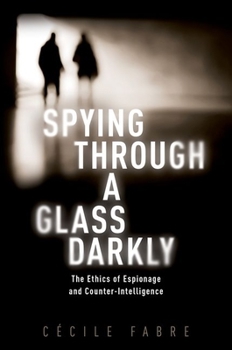Spying Through a Glass Darkly: The Ethics of Espionage and Counter-Intelligence
C cile Fabre draws back the curtain on the ethics of espionage and counterintelligence. Espionage and counter-intelligence activities, both real and imagined, weave a complex and alluring story. Yet there is hardly any serious philosophical work on the subject. C cile Fabre presents a systematic account of the ethics of espionage and counterintelligence. She argues that such operations, in the context of war and foreign policy, are morally justified as a means, but only as a means, to protect oneself and third parties from ongoing violations of fundamental rights. In doing so, she addresses a range of ethical questions: are intelligence officers morally permitted to bribe, deceive, blackmail, and manipulate as a way to uncover state secrets? Is cyberespionage morally permissible? Are governments morally permitted to resort to the mass surveillance of their and foreign populations as a means to unearth possible threats against national security? Can treason ever be morally permissible? Can it ever be legitimate to resort to economic espionage in the name of national security? The book offers answers to those questions through a blend of philosophical arguments and historical examples.
Format:Hardcover
Language:English
ISBN:0198833768
ISBN13:9780198833765
Release Date:April 2022
Publisher:Oxford University Press
Length:264 Pages
Weight:1.19 lbs.
Dimensions:0.9" x 6.5" x 9.4"
Customer Reviews
0 rating





